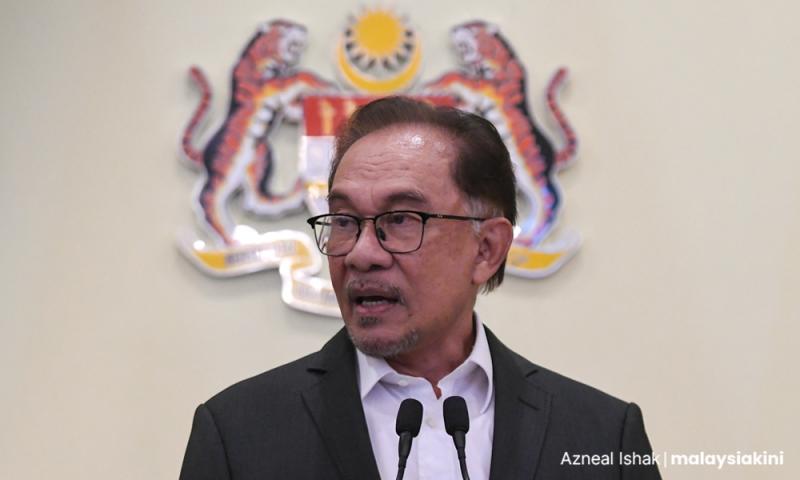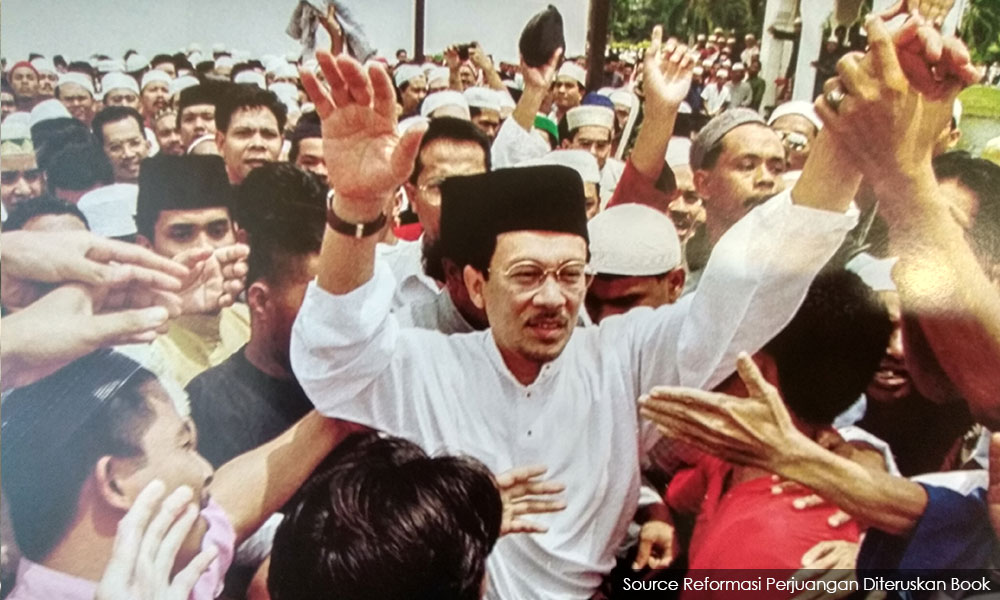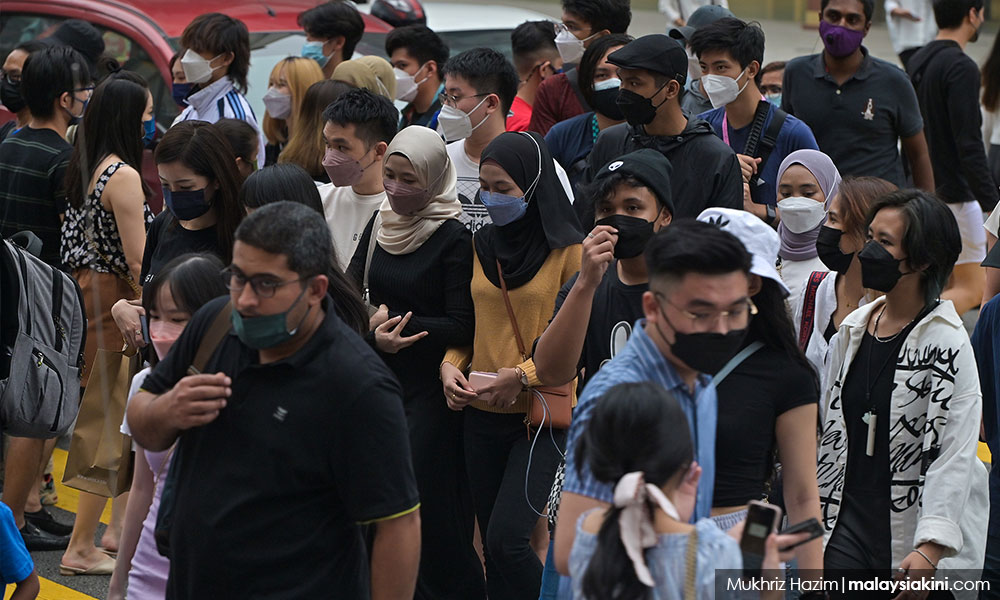
Eric Loo
COMMENT | Headlines over the past weeks have projected that change for the better will happen – and happen soon - despite emerging uncertainties in a coalition of former rivals.
That reminds me of former US president Barack Obama’s yes-we-can agenda. He began his presidency as a healer of a divided nation. He ended with an uncertain legacy. Today, race relations in the US are as depressing as they were 20 years ago.
As Obama wrote in ‘The Promised Land’, he often had to make painful compromises to appease every member of Congress. His vision for change was blocked at every turn. Making strategic compromises became routine.
Will Prime Minister Anwar Ibrahim, likewise, over-compromise to appease a coalition that harbours conflicting expectations? Five years down the track, will we see more of the same?
As Niccolo Machiavelli wrote in 16th century Renaissance Italy: “There is nothing more difficult to carry out, more doubtful of success, nor more dangerous to handle, than to initiate a new order of things. For the reformer has enemies in all who profit from the old order, and only lukewarm defenders in those who would benefit from the new.”
Anwar’s reformasi
Political pundits have various theories on how reformasi may happen on our home front. Who knows whether the prime minister will last a full five-year term, if not two terms?
What we know is this: Anwar’s interracial experience, his reformasi agenda and his commitment to weed out public corruption.
Here lies a hope that his activist days fighting for the poor farmers in 1974 when he was detained for a year, two jail sentences in 1999 and 2015, and his international exposure, will somehow shape his leadership.
His chameleonic dispositions, however, are open to questions. To the West, he presents himself as a liberal Muslim democrat. To his Malay base, he is a protector of Islam and Malay rights. To his other supporters, he is a reformist leader.
COMMENT | Headlines over the past weeks have projected that change for the better will happen – and happen soon - despite emerging uncertainties in a coalition of former rivals.
That reminds me of former US president Barack Obama’s yes-we-can agenda. He began his presidency as a healer of a divided nation. He ended with an uncertain legacy. Today, race relations in the US are as depressing as they were 20 years ago.
As Obama wrote in ‘The Promised Land’, he often had to make painful compromises to appease every member of Congress. His vision for change was blocked at every turn. Making strategic compromises became routine.
Will Prime Minister Anwar Ibrahim, likewise, over-compromise to appease a coalition that harbours conflicting expectations? Five years down the track, will we see more of the same?
As Niccolo Machiavelli wrote in 16th century Renaissance Italy: “There is nothing more difficult to carry out, more doubtful of success, nor more dangerous to handle, than to initiate a new order of things. For the reformer has enemies in all who profit from the old order, and only lukewarm defenders in those who would benefit from the new.”
Anwar’s reformasi
Political pundits have various theories on how reformasi may happen on our home front. Who knows whether the prime minister will last a full five-year term, if not two terms?
What we know is this: Anwar’s interracial experience, his reformasi agenda and his commitment to weed out public corruption.
Here lies a hope that his activist days fighting for the poor farmers in 1974 when he was detained for a year, two jail sentences in 1999 and 2015, and his international exposure, will somehow shape his leadership.
His chameleonic dispositions, however, are open to questions. To the West, he presents himself as a liberal Muslim democrat. To his Malay base, he is a protector of Islam and Malay rights. To his other supporters, he is a reformist leader.

Machiavellian? Or just being pragmatic? Any way you see it, there is no better reformist leader today than Anwar among the current pool of lacklustre politicians.
Contrast Anwar’s life experience and international recognition with his contemporaries – PAS president Abdul Hadi Awang, Umno president Ahmad Zahid Hamidi and Bersatu president Muhyiddin Yassin. The difference is as stark as night is from day.
Here’s a theory: A leader’s life experience carries meaningful influence in their approach to governing, and, in our context, the handling of race and religion issues.
Handling the Asian financial crisis
On this premise, Anwar’s tribulations, which began during the 1997 Asian financial crisis, will, we hope, have a meaningful influence on his administration.
For a peek at how Anwar handled the crisis when he was finance minister and subsequently sacked by then prime minister Dr Mahathir Mohamad, I quote from his Facebook post:
“… Malaysia’s prosperity is only sustainable if it is based on strong fundamentals, market access and structural reforms which promote transparency and accountability and prevent the capture of public institutions by special interests.
“Solving these problems, which were rampant in the region, is key to ensuring Malaysia achieves its long-term development goals and does not get mired in the swamp of corruption and cronyism.”
Anwar said in an interview with Pew Forum in 2006, when he was a distinguished visiting professor at Georgetown University, Washington DC: “… my concern is that we are not moving forward; we are not maturing as a culture. We are not prepared to shift both the political philosophy and economic policy… look at corruption; it is not being addressed. And corruption can be endemic and cancerous.
“… billions of dollars have been squandered by corrupt officials to improve themselves, their children and their careers. And that is why there is a resistance to change in the government. If this resistance to change persists we will lose our competitiveness…”
Re-examine racial attitudes
What can we do to fertilise the seeds of reformasi and see them break through, green and vigorous, competitive but fair?
We do need to re-examine our racial attitudes and recognise that some issues are not necessarily related to race or religion. If all we have is a hammer (race and religion), every problem looks like a nail.
For too long, incompetent leaders have stoked the racial pot, baiting their constituents, with no clear end in sight. Here lies the obstacle to potential reforms.
Hence, we need a new discursive tool to rethink and disengage from race and religion in our politics. (And make our support known to the prime minister who has 1.6 million followers on Twitter, and 2.3 million on Facebook.)
PSM leader Dr Michael Jeyakumar Devaraj cautioned in his analysis: “It is important that the supporters of the reform movement... understand the need to allay Malay anxieties.”
Here, I am tempted to say it is time we stop hammering away at the “special position of the Malays”. This means respecting Article 153 of the Constitution as the only way to co-exist and prosper together.
When we question the New Economic Policy, are we specifically challenging the Malay special position and privileges? No, not exactly. We are speaking out for the B40 grassroots across all communities.

We are confronting the policy abuse with impunity by the cronies and the politically connected – Malays and non-Malays included. There are givers, and there are takers.
A unity government should recalibrate the fundamentals, tackle the real structural issues and reform anti-productive policies that spawn public corruption, undermine business confidence, weaken our human capital and hold us back from improving our station in life.
This is where we rest our collective hope on Anwar to lead with equanimity and resilience, with transparency and the rule of law.
ERIC LOO is a former journalist and educator in Australia, and a journalism trainer in parts of Asia.

"When we question the New Economic Policy, are we specifically challenging the Malay special position and privileges? No, not exactly. We are speaking out for the B40 grassroots across all communities."
ReplyDeleteComment: it certainly is a noble thought. But the writer must be naive to think that ketuanan bigots will not twist the issue into a them versus us narrative and make it such that the Malays B40 will be deprived of any assistance.
A hp6 bleedingheartish disclosure of a genuflecting altruist!
ReplyDelete